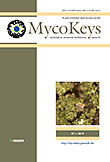
MycoKeys
metrics 2024
Pioneering discoveries in fungal biology and ecosystems.
Introduction
MycoKeys, published by PENSOFT PUBLISHERS, is a leading open-access journal dedicated to advancing the understanding of fungal biology and its diverse implications within agricultural, ecological, and biological sciences. With its ISSN 1314-4057 and E-ISSN 1314-4049, this journal has achieved remarkable academic prestige, reflected in its 2023 Scopus rankings placing it in the first quartile (Q1) across several categories, including Agricultural and Biological Sciences (miscellaneous), Ecology, Evolution, Behavior and Systematics, and Plant Science. MycoKeys provides a platform for researchers, professionals, and students interested in the latest findings and methodologies regarding fungi, their environments, and their interactions within various ecosystems. Since its transition to open access in 2011, the journal has championed the dissemination of high-quality research to a global audience, fostering collaboration and innovation in mycology. With a publishing history that converges from 2015 to 2024, MycoKeys remains a vital resource for those committed to exploring the multifaceted roles fungi play in our world.
Metrics 2024
 1.00
1.00 2.80
2.80 2.80
2.80 31
31Metrics History
Rank 2024
Scopus
IF (Web Of Science)
JCI (Web Of Science)
Quartile History
Similar Journals
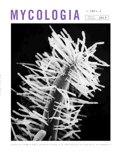
MYCOLOGIA
Connecting researchers to the forefront of mycological science.MYCOLOGIA, published by Taylor & Francis Inc, is a prestigious journal that has been at the forefront of fungal research since its inception, with converging years of publication from 1945 to 2024. This interdisciplinary journal, identified by ISSN 0027-5514 and E-ISSN 1557-2536, stands out in various scientific categories, achieving Q1 rankings in Ecology, Evolution, Behavior and Systematics, as well as Plant Science, alongside strong performances in Cell Biology and Molecular Biology categories. With an impact factor that reflects its significance in the field, MYCOLOGIA appeals to a diverse audience, including researchers, professionals, and students dedicated to advancing the understanding of fungal biology and its ecological implications. Notably, while it does not currently operate under an Open Access model, the journal remains a vital resource for those pursuing groundbreaking discoveries in mycology and related disciplines.

NEW ZEALAND JOURNAL OF BOTANY
Fostering Innovation in Plant Science ResearchThe New Zealand Journal of Botany, published by the esteemed Taylor & Francis Ltd, serves as a pivotal platform for disseminating significant research in the fields of Ecology, Evolution, Behavior and Systematics, as well as Plant Science. With a rich history dating back to 1963 and an impressive convergence extending to 2024, this journal has established itself as an essential resource for researchers and professionals dedicated to understanding the complexities of plant life and ecological systems in New Zealand and beyond. The journal is currently categorized in the Q3 quartile for both relevant disciplines as of 2023, reflecting its balanced influence within the global academic community. Although not an open access journal, it retains a significant impact factor, evidenced by its Scopus rankings, which place it within the top half of its categories. This makes it an invaluable tool for students, researchers, and academics aiming to engage with robust, peer-reviewed scientific findings and contribute to the evolving discourse surrounding botany and ecological research.
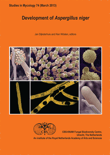
STUDIES IN MYCOLOGY
Exploring the Depths of Fungal DiversitySTUDIES IN MYCOLOGY is a premier journal dedicated to advancing research in the field of mycology, published by the renowned WESTERDIJK FUNGAL BIODIVERSITY INSTITUTE. With an impact factor that places it in the top quartile (Q1) of both Agricultural and Biological Sciences and Plant Science categories, it holds a prestigious position in the scientific community, ranking #1 out of 193 in its field as per Scopus metrics. Since its transition to Open Access in 2008, it has made significant strides in disseminating high-quality research widely, fostering a greater understanding of fungal biodiversity and its ecological impact. Covering a broad spectrum of topics related to mycology, the journal aims to provide researchers, professionals, and students with a platform for sharing innovative findings, stimulating academic discourse, and promoting collaborative efforts within this vital area of study. Hailing from the Netherlands, STUDIES IN MYCOLOGY serves as an invaluable resource for exploring the complexities of fungi, their interactions with various ecosystems, and their practical applications in agriculture and beyond.

Journal of Fungi
Pioneering Insights into the Fungal RealmJournal of Fungi is a premier open-access journal published by MDPI, dedicated to advancing the understanding of fungal biology in its myriad forms. Since its inception in 2015, it has become a vital resource in the fields of ecology, evolution, and plant sciences, attaining notable rankings in Scopus, including Q1 status in Ecology, Evolution, Behavior and Systematics, and Plant Science, with a Q2 ranking in Microbiology (medical). The journal fosters a collaborative platform for researchers, professionals, and students by providing unrestricted access to high-quality, peer-reviewed articles, which encourages the dissemination of innovative findings and methodologies relevant to fungal research. Designed to cater to a global audience, the Journal of Fungi has established its significance in the scientific community, especially from its base in Switzerland, where it continues to contribute to the ongoing discourse in mycology and beyond. With its commitment to open access since its launch and its continuous support for groundbreaking research, the journal plays a crucial role in driving forward the scientific inquiry and ecological awareness in fungal studies.
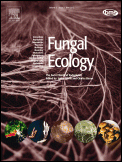
Fungal Ecology
Fostering Global Collaboration in Fungal ResearchFungal Ecology, published by Elsevier Science Ltd, is a leading international journal dedicated to the exploration and advancement of our understanding of fungal biology and its ecological significance. With an impressive impact factor and recognized in the second quartile (Q2) across various categories such as Ecological Modeling, Ecology, Ecology, Evolution, Behavior and Systematics, and Plant Science, this journal offers a critical platform for researchers and professionals to disseminate and discuss innovations in fungal ecology. Since its inception in 2008, the journal has built a solid reputation, particularly highlighted by its impressive Scopus rankings, including a top percentile status in ecological fields. Researchers are encouraged to submit their findings that contribute to the understanding of the ecological roles of fungi, their interactions within ecosystems, and their applications in environmental science. Although the journal does not offer open access, it remains a vital resource for academics and practitioners aiming to stay ahead in the rapidly evolving fields of fungal research and ecology. Located in the vibrant heart of the Netherlands, the journal continues to foster scholarly engagement and collaboration among scientists globally.
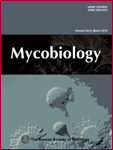
MYCOBIOLOGY
Innovating Research Across Infectious Diseases and Plant ScienceMYCOBIOLOGY is an esteemed open-access journal published by Taylor & Francis Ltd, specializing in the fields of Infectious Diseases, Microbiology, and Plant Science. Since its inception, the journal has provided a platform for innovative research, showcasing a diverse range of studies that delve into the complexities of mycology and its vast implications on health, agriculture, and the environment. With a commendable impact factor and a Q2 ranking in Plant Science as of 2023, MYCOBIOLOGY facilitates the dissemination of vital findings to a global audience of researchers, professionals, and students. In addition to its commitment to high-quality content, MYCOBIOLOGY has embraced open access since 2018, ensuring that the latest advancements in mycological research are readily available to the academic community and the public. By bridging gaps in knowledge and fostering collaboration across disciplines, MYCOBIOLOGY plays a crucial role in advancing our understanding of fungal biology and its myriad applications.
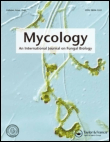
Mycology-An International Journal On Fungal Biology
Advancing Knowledge in Fungal ResearchMycology: An International Journal on Fungal Biology, published by Taylor & Francis Ltd, stands at the forefront of fungal research, facilitating the dissemination of knowledge across the diverse fields of infectious diseases, microbiology, and plant science. Established as an Open Access journal since 2010, it offers researchers free and immediate access to high-quality articles that advance our understanding of fungal biology and its applications. With a commendable ranking in Q2 for Infectious Diseases and Microbiology, and Q1 for Plant Science as of 2023, it positions itself as a vital resource for the global scientific community. The journal, conveniently located in the United Kingdom, is committed to publishing rigorous research that stimulates discussion and fosters collaboration among academics, practitioners, and students alike. By providing a platform for innovative studies and critical reviews, Mycology continues to play an essential role in unraveling the complexities of fungal organisms and their profound implications in health, agriculture, and ecosystem dynamics.
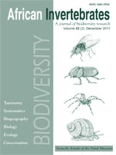
AFRICAN INVERTEBRATES
Advancing Knowledge of Africa's Invertebrate EcosystemsAFRICAN INVERTEBRATES is a distinguished open-access academic journal published by the COUNCIL NATAL MUSEUM, specializing in the study of invertebrate biology within the vibrant ecosystems of Africa. Operating since 2006, this journal has established itself as a vital resource in the fields of Animal Science, Ecology, Evolution, Behavior, Insect Science, and Paleontology, earning a strong Q2 ranking in these categories as of 2023. With its ISSN 1681-5556 and E-ISSN 2305-2562, the journal provides unrestricted access to cutting-edge research, fostering collaboration among global researchers and professionals. AFRICAN INVERTEBRATES serves not only as a platform for high-quality scholarly articles but also aims to enhance the understanding of Africa's unique invertebrate fauna and the ecological challenges they face. With a commitment to innovation and excellence, the journal is pivotal for those looking to contribute to the discourse surrounding African biodiversity and conservation strategies.
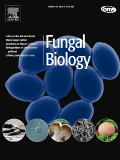
Fungal Biology
Unlocking the Secrets of Fungi for a Sustainable FutureFungal Biology, published by Elsevier Science Ltd, is a premier journal dedicated to advancing the field of mycology and its interdisciplinary applications. With an ISSN of 1878-6146 and E-ISSN 1878-6162, this journal serves as a vital platform for researchers and professionals interested in the ecological, evolutionary, and genetic aspects of fungi, as well as their implications in infectious diseases and plant sciences. As of 2023, it proudly holds a Q2 ranking in Ecology, Evolution, Behavior and Systematics and Plant Science, and a Q3 ranking in Genetics and Infectious Diseases, highlighting its significant contribution to these domains. The journal boasts an impressive Scopus rank, including a percentile of 83rd in Ecological studies, ensuring that published research reaches a wide audience and impacts ongoing discourse in the field. With open access options, Fungal Biology encourages the dissemination of high-quality research, aimed to foster collaboration and innovation among scholars and practitioners. With its convergence of knowledge from 2010 to 2024, this journal is instrumental for those advancing the understanding of fungal biology and its myriad applications in environmental and health sciences.

MYCOSES
Driving innovation in dermatology and infectious disease.MYCOSES is a renowned academic journal published by Wiley, specializing in the fields of Dermatology, Infectious Diseases, and general Medicine, with a commendable focus on mycological research and its clinical implications. Established in 1957, this journal has significantly contributed to advancing our understanding of fungal diseases, offering a platform for high-quality research that ranks among the top in its categories—achieving Q1 status in Dermatology and Q1 in Medicine (miscellaneous), while maintaining a strong Q2 ranking in Infectious Diseases. With an impressive Scopus ranking of #5 in Medicine - Dermatology, MYCOSES occupies a pivotal position in the dissemination of critical findings and innovative practices within the scientific community. Although it is not an open-access journal, MYCOSES continues to attract a wide array of researchers, professionals, and students seeking to enhance their knowledge and keep abreast of the latest developments in mycology. Overall, MYCOSES not only serves as an essential resource for academia but also plays a vital role in shaping future research directions and clinical approaches to fungal infections.